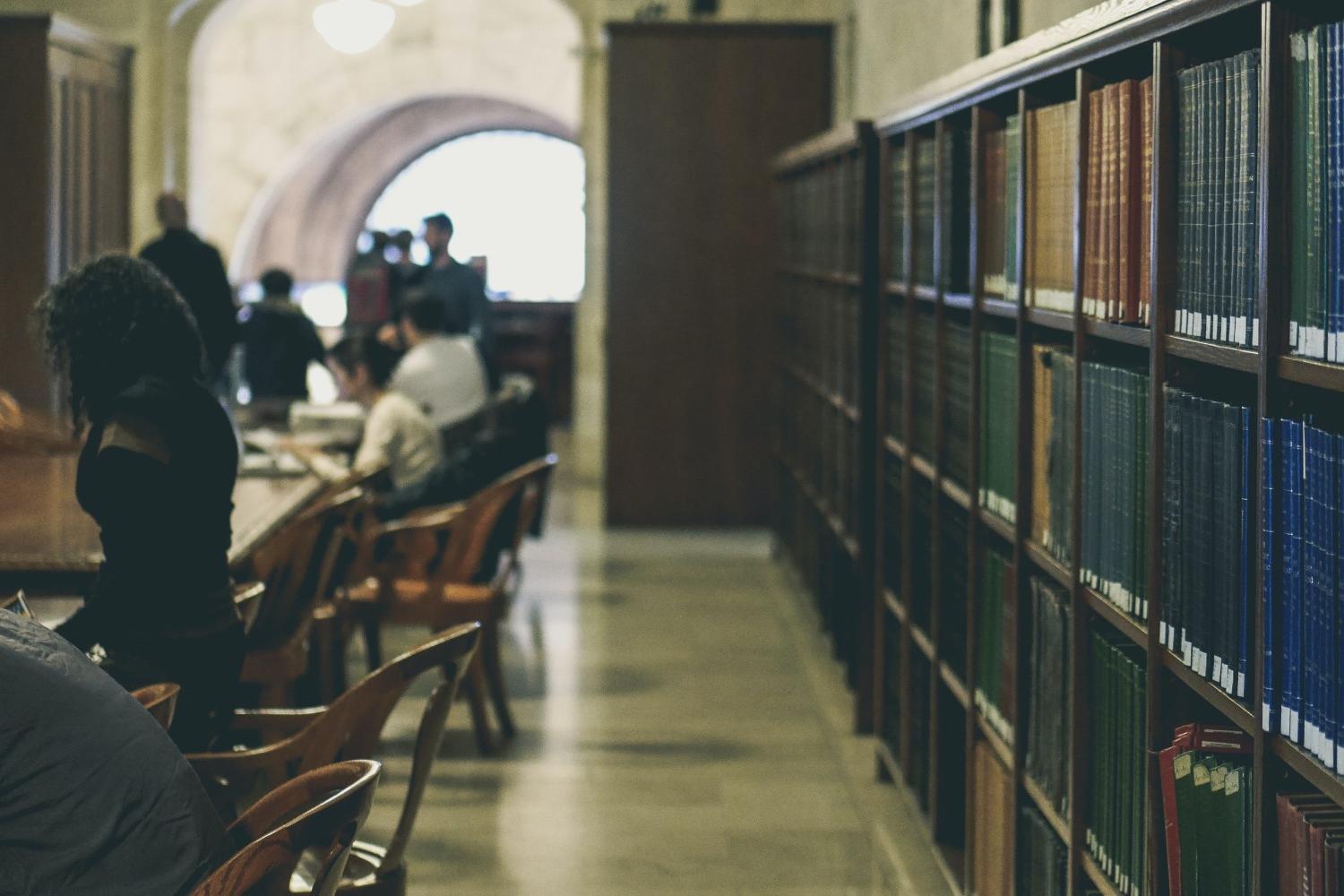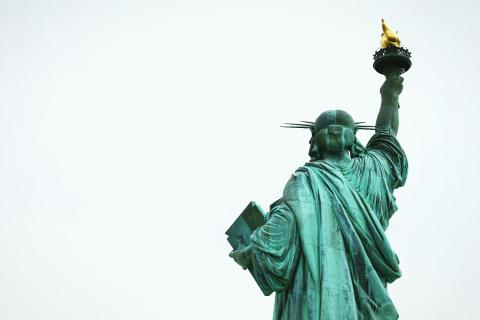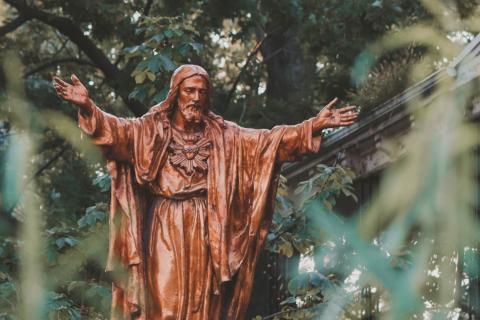
“The Latin word liber means liberty, freedom. It’s where the whole idea of the Liberal Arts comes from. And so at the University of Mary, in addition to preparing our students well for their professions, the careful study of the liberal arts frees them from the darkness of ignorance, inviting them to explore the most essential questions of human existence: “who am I?”, “what have I been made for?”, “what is love?”, “why should I get up every morning and fight life’s battle?” Along the way, they discover the interconnectedness of all the various disciplines, and most importantly, the Truth behind all things. In this way, our students become not only better nurses, engineers, or teachers because of their ability to think critically and communicate effectively, but they become better human beings for having been enriched by the liberal arts and awakened to a love for Truth” (Monsignor James Shea, President, University of Mary).
Throughout the last few decades, teachers and school administrators in America’s schools have received a tremendous amount of public scrutiny for the poor academic performance of their students. This public scrutiny has led state and national policymakers to put pressure on teacher education programs to improve and to hold them more accountable for the development of effective teachers. The U.S. Department of Education has created numerous initiatives designed to improve teacher education, primarily driven by research that reveals the positive effect that qualified and high-performing teachers have on improving student learning. Teacher education programs have responded by implementing numerous preservice teacher (i.e., students enrolled in a teacher preparation program) assessment measures throughout each candidate’s program of study to evaluate their knowledge, teaching skills, and their ability to increase student learning. In addition, most states now require teaching candidates to take standardized tests in math and literacy as well as pedagogy and core content knowledge in their major to certify their ability to teach and to earn a teaching license.
As the Dean of the Liffrig Family School of Education and Behavioral Sciences at the University of Mary, I have participated on numerous state committees and professional taskforces organized to find ways to improve the preparation of teachers. What I have witnessed, however, is most teacher preparation improvement efforts have focused on revising and/or adding professional education coursework to improve the knowledge and skills of their preservice teachers. Few teacher education program improvement initiatives have focused on using the liberal arts as a means to improve preservice teachers’ skills and knowledge, even though historically, the aim of a liberal arts education has been to produce a virtuous, ethical, and knowledgeable person who has the ability to critically think and to write, reason, and communicate clearly, which are foundational skills needed for any person entering the teaching profession.
Since Greek and Roman times, the liberal arts have been seen as essential in the formation of citizens for a free and just society with many higher education institutions proud to announce they were a liberal arts school offering many different liberal arts programs. Since the 1980s, however, liberal arts institutions and, in general, liberal arts programs in higher education have declined in numbers with more and more colleges focusing on the development of professional programs that lead directly to getting students jobs. According to a recent study by the American Academy of Arts Sciences (2021), “Bachelor’s Degrees in the Humanities,”
Although these questions are legitimate, they are not the only questions a prospective student or prospective student’s parents should ask. More important questions would be:
- “How will this program of study help graduates grow in virtue and character?”
- “What do graduates in this program learn that they would not learn in the same program at another university?”
- “Will graduate from this program be taught how to develop their problem-solving or critical think skills?”
Thomas Friedman (2006) states, “It is not only what you know but how you learn that will set you apart.”

Educating Tomorrow's Leaders
An interview with Dr. Paul Carrese and Dr. Rod Jonas
Higher education plays a crucial role in our society's accomplishments and dysfunctions alike. Through civic education and the liberal arts, students are formed to live full lives as engaged citizens.
With the focus in teacher education on the development of a preservice teacher’s knowledge and skills, many teacher preparation programs have lost sight of the value of the liberal arts in the preparation of teachers by helping preservice teachers learn how to learn and, hence, helping their students learn. The liberal arts help students develop the ability to discern what is true and what is false and to develop a love of learning and an appreciation for the human mind and human spirit. At the University of Mary, a Catholic, Christian, and Benedictine university, we have not succumbed to the notion that the study of the liberal arts does not play a role in the development of a teacher. Our liberal arts core course requirements have been guided by the Catholic Intellectual Tradition that views the liberal arts as informing and enriching all areas of learning and the universe as a coherent whole created by a rational God with a focus on educating the whole person by cultivating wisdom and character. All of our students, regardless of their major, are required to take a set of liberal arts courses that help build in each student the following four competencies:
- Spirituality and Ethics: Draw upon spiritual, philosophical, religious, and Benedictine traditions to express and act upon a principled set of values.
- Global Stewardship: Respect and be critically aware of oneself and the diverse world to protect and strengthen the natural, cultural, and social environment.
- Communication: Read, write, listen, and speak effectively to gain and share meaning in a diverse world.
- Critical Thinking: Analyze, synthesize, and evaluate ideas and information from multiple perspectives to make decisions and solve problems.
At the University of Mary, we believe in the liberal arts and their value in providing the foundation needed for our students to become effective high-performing teachers. We believe our liberal arts core enables our students to become men and women who are responsible citizens, persons of integrity and faith, and, at the same time, specialists in their chosen discipline of education. We integrate the core competencies in our education courses and believe these competencies are critical in the development of our preservice teachers. The liberal arts core courses are designed to cultivate the mind of our students and provide students with an understanding of how to problem solve, think critically, and express their ideas clearly and thoroughly. As a result, students in our teacher education program become effective high-performing teachers, who make a difference in the lives of their students. Without a liberal arts background, our preservice teachers would be no different from any other teacher preparation program graduates. As graduates of a professionally focused and academically rigorous teacher education program enlivened by the liberal arts, however, our graduates are different because of the skills and knowledge gained from the liberal arts.


